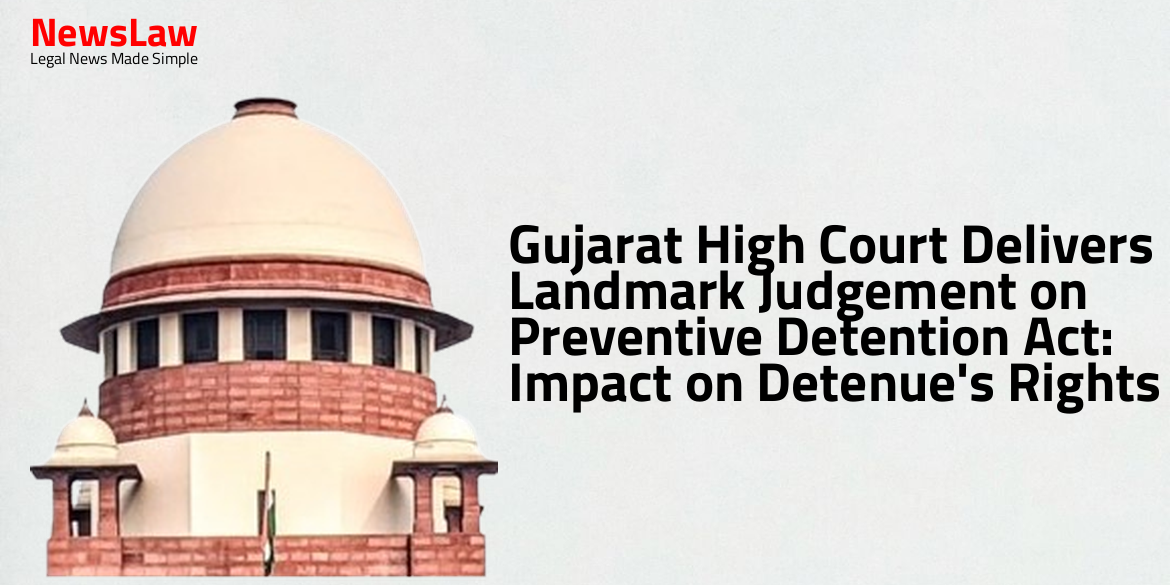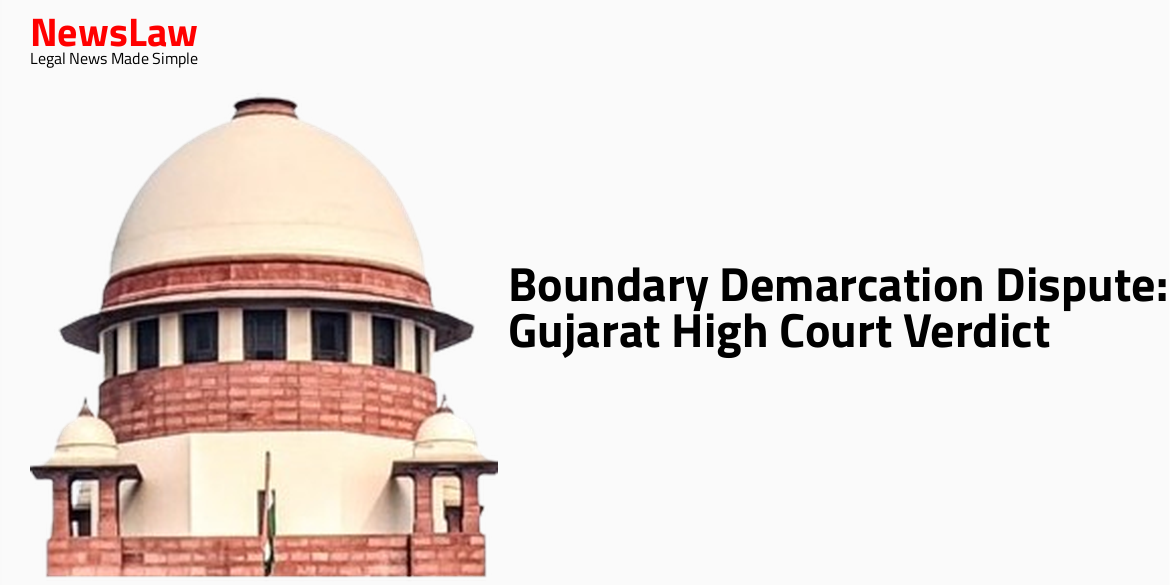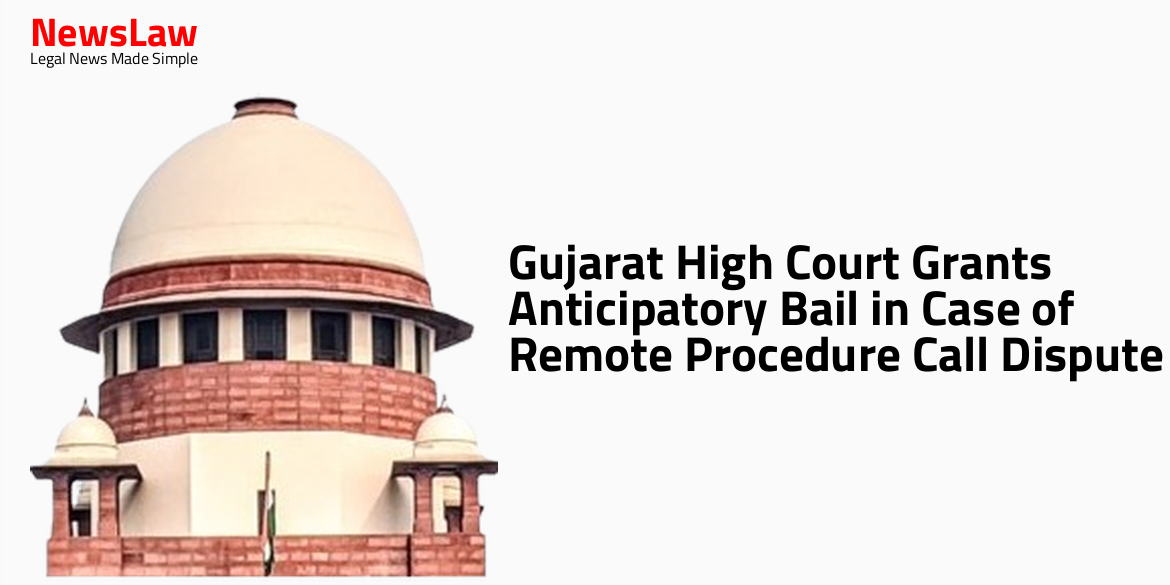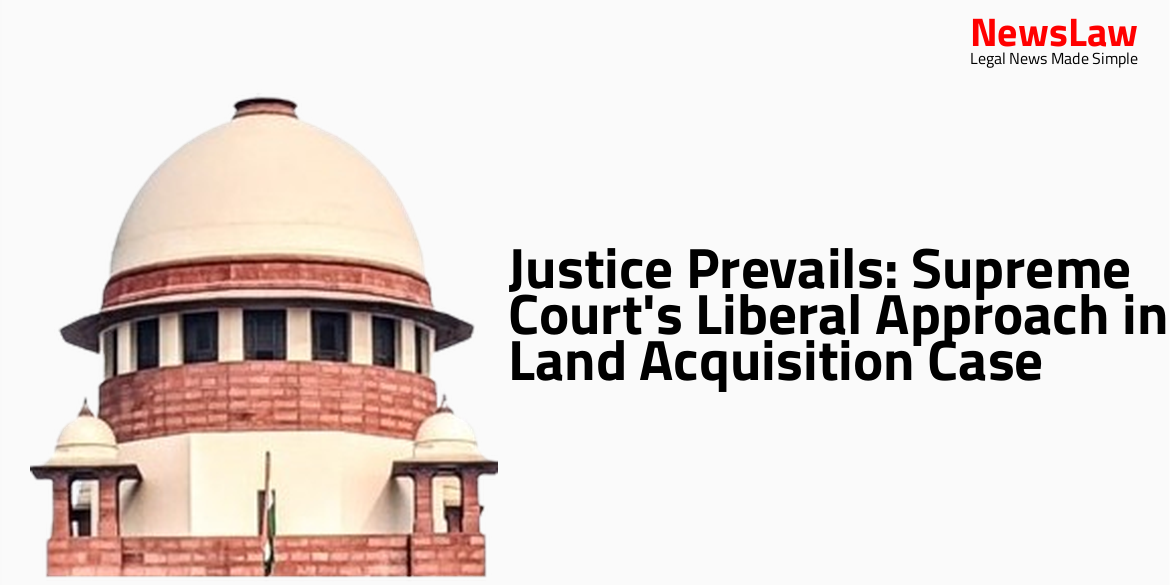In a significant legal development, the Gujarat High Court has delivered a landmark judgement on the Preventive Detention Act, examining the impact on the rights of the detenue involved. The court’s decision sheds light on crucial aspects of preventive detention laws, emphasizing the need for a clear distinction between ‘law and order’ and ‘public order’. This judgement carries implications for the detenue’s case, addressing the balance between individual liberties and public safety.
Facts
- The petitioner has challenged the order dated 15.04.2021 under Section 2(c) of the Act of 1985 designating him as a ‘dangerous person’.
- The Hon’ble High Court observed that the term ‘dangerous person’ under the Act refers to a person who has been involved in activities that are prejudicial to the maintenance of public order.
- The court noted that the petitioner’s involvement in criminal activities and his previous record formed the basis for his classification as a ‘dangerous person’.
- The court found no merit in the petitioner’s contention that the order was arbitrary or illegal.
- The petition challenging the order designating the petitioner as a ‘dangerous person’ was dismissed by the court.
Issue
- Whether the interpretation of Article X of the Constitution is in question
- Analysis of relevant precedents and legal provisions
- Evaluation of the impact of the interpretation on the present case
- Determination of the necessity of Supreme Court intervention
Arguments
- Learned advocate for the detenue argues that the grounds of detention have no nexus to public order but are solely related to law and order.
- The detenue’s alleged offenses are considered to be only prejudicial to the maintenance of law and order, not public order.
- The State Counsel argues that the detenue is a habitual offender whose activities have affected society at large.
- The Detaining Authority passed the order to prevent the detenue from acting in a manner prejudicial to the maintenance of public order in the Amreli area.
- The sustainability of the order of detention under the Act of 1985 is in question, considering the detenue’s antecedents and past activities.
- The petitioner is currently in jail as the impugned order has been executed upon him.
Analysis
- Three criminal cases referenced in the grounds of detention were minor breaches primarily injuring specific individuals.
- Petitioner was granted bail in all the said offences.
- The authority wrongly concluded the petitioner’s activities as prejudicial to public order based on the three criminal cases.
- The said offences were determined to have no impact on public order maintenance.
- The Supreme Court decision in Piyush Kantilal Mehta Vs. Commissioner of Police, Ahmedabad, 1989 Supp (1) SCC 322 was referenced.
- Merely disturbing law and order is not sufficient for action under Preventive Detention Act.
- Disturbance must affect public order to come under the scope of the Act.
- The alleged anti-social activities of the petitioner do not adversely affect public order.
- Incidents of beating by the petitioner, as alleged, do not have a bearing on the maintenance of public order.
- There is a distinction between ‘law and order’ and ‘public order’ as established in previous cases.
- Contravention of law affects order, but to affect public order it must impact the community or the public at large.
- A line must be drawn between serious forms of disorder that directly affect the community and lesser infractions.
- The petitioner cannot be preventively detained under the provisions of the Act unless his activities as a bootlegger affect adversely or are likely to affect adversely the maintenance of public order.
- The petitioner is considered a bootlegger as per the Act’s definition in section 2(b), but being a bootlegger alone is not sufficient grounds for preventive detention.
- The necessity to prove adverse effects on public order due to the petitioner’s bootlegging activities is highlighted in sub-section (4) of section 3 of the Act.
- The material on record is not sufficient to show that the alleged activities of the detenue have affected or are likely to affect the maintenance of public order.
- The subjective satisfaction of the detaining authority is not legal, valid, or in accordance with the law.
- The offenses alleged and the allegations made do not create a sense of insecurity, panic, or terror among the public in the area in question.
- There is no evidence to suggest that the detenue’s actions have impacted public order adversely.
Decision
- The detenue is directed to be set at liberty immediately if not needed in any other case.
- The petition is allowed and the order dated 12.01.2024 is quashed.
- Direct service is permitted.
Case Title: GOVINDSING NANAKSING BAVRI (CHIKLIGAR) Vs. STATE OF GUJARAT
Case Number: R/SCA/1411/2024



